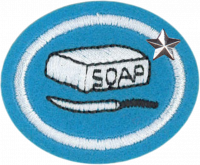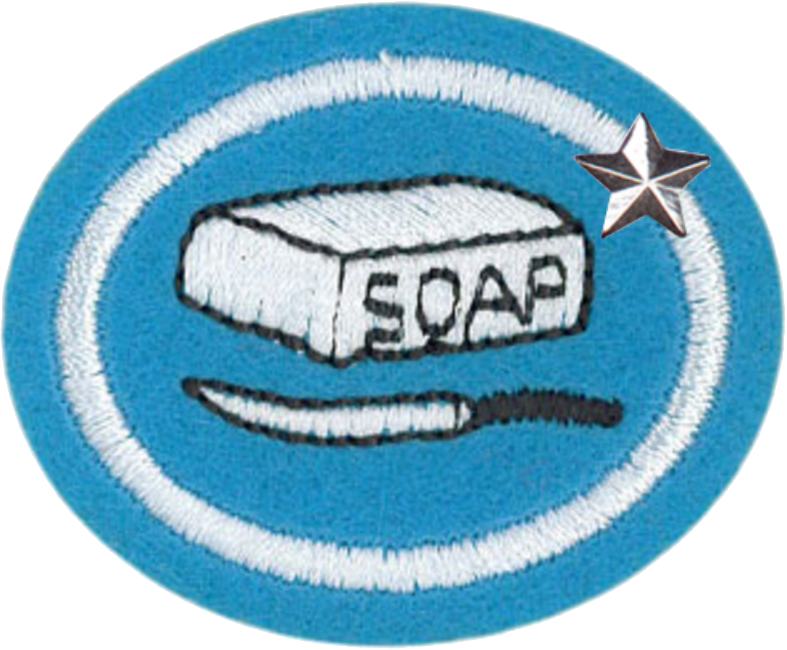Difference between revisions of "AY Honors/Soap Craft - Advanced/Answer Key 2/es"
(Created page with "</noinclude> <!-- 1. Tener la especialidad de Trabajos en jabón. --> {{honor_prerequisite|displayname=Trabajos en jabón|honor=Soap Craft}}") |
(Created page with "</noinclude> {{division variant/es|division=Asociación General}} <noinclude>") |
||
| Line 48: | Line 48: | ||
{{CloseReq}} <!-- 3 --> | {{CloseReq}} <!-- 3 --> | ||
{{ansreq|page={{#titleparts:{{PAGENAME}}|2|1}}|num=4}} | {{ansreq|page={{#titleparts:{{PAGENAME}}|2|1}}|num=4}} | ||
| − | <noinclude> | + | <noinclude></noinclude> |
| − | </noinclude> | + | <!-- 4. Describir qué sucede cuando se agrega una base fuerte a un aceite o grasa. ¿Cómo se llama? --> |
| − | <!-- 4. | ||
| − | |||
<div lang="en" dir="ltr" class="mw-content-ltr"> | <div lang="en" dir="ltr" class="mw-content-ltr"> | ||
Revision as of 19:34, 6 May 2021
Nivel de destreza
2
Año
1964
Version
20.02.2026
Autoridad de aprobación
División Norteamericana
Para consejos e instrucciones, véase Trajabos en jabón.
With lye - Safety glasses, long sleeves, long pants, gloves, close toe shoes, hair net or head covering, mask, accurate scale
Without Lye - Pot holder, hair net or hair covering, gloves, accurate scale.
- sodium hydroxide (NaOH)
- potassium hydroxide (KOH)
- lithium hydroxide (LiOH)
Additionally
- rubidium hydroxide (RbOH)
- cesium hydroxide (CsOH)
Lye is a strong alkali which is highly soluble in water, producing caustic, basic solution. The Lye is needed to react with the fat to form a new product which is a surfactant. Surfactants are molecules that spontaneously bond with each other, in the case of Lye and fat, they form soap.
When a triglyceride (fat, oil or lipid) is treated with a strong base (lye), it cleaves the ester bond, releasing fatty acid salts (soaps) and glycerol.
It is called Saponification.
Hard soap is made with sodium hydroxide, whereas soft/liquid soap is made with potassium hydroxide.
Vegetable fats such as olive oil, corn oil, palm oil, and coconut oil.
Animal fats such as tallow and lard.
Transparent soap is simply "hot process soap" that uses solvents (sugar, glycerin and alcohol) to dissolve the soap crystals that form. This allows light to pass through the soap, creating transparency.
Soap is biodegradable, derived from natural sources, but does not work well in cold water and forms soap scum. Detergent works in all temperatures and in saline water, does not form scum, but is not biodegradable and is made from synthetic materials.
Air is whipped into the soap as it hardens.
For though you wash yourself with lye, and use much soap, yet your iniquity is marked before Me,” says the Lord God.
“But who can endure the day of His coming? And who can stand when He appears? For He is like a refiner’s fire and like launderers’ soap.
Essential oils, perfumes, seeds as scrubbers, colorants
Use wood molds lined with parchment paper, or silicone molds and forms that will not react with the lye. Use containers that will not react with the soap, while keeping in mind a way to release it, if desired.
Do not use aluminum as the lye will dissolve the surface, or wood by itself as it will absorb the liquid soap.
Methods include:
- melt & pour
- rebatch
- cold process
- hot process
- oven process
- hot process liquid
Melt & pour and rebatch do not need lye because they are already saponified.
- Advanced technique
- Step by step all the basics


